Remembrance for the fallen is only one of the activities of the Royal British Legion (RBL) that Pattaya City Expat Club members and guests learned at their meeting on Sunday, April 23. The speaker, Andy Barraclough, explained the motto, “Live On – To the Memory of the Fallen and the Future of the Living” which outlines the role and activities of the Legion throughout the world. He also talked about the Australia and New Zealand Army Corps (ANZAC) Memorial Day remembrances in Thailand.
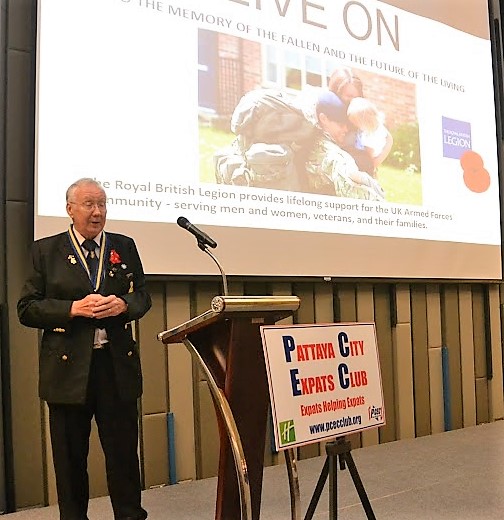
Andy Barraclough is the chairman of the Royal British Legion (RBL) Branch of Chonburi, and has been since 2015. His “day job” is that of Emeritus Professor of Public Health and Director of Training at the Empower School of Health, a World Health Organization, Cooperative Center and a 30-year resident of Thailand. He is also an author of numerous books, technical papers and on-line training courses on medicines and health products. Andy also serves as the chairman of the “Regulars of Jameson’s Charity Committee”, based at Jameson’s Restaurant and Pub, Soi AR, Pattaya and administers their collected donations.
Chairman Barraclough outlined the mission of the Royal British Legion as providing lifelong support for the UK Armed Forces community, serving men and women veterans and their families. The Legion’s patron is Her Majesty Queen Elizabeth the Second. The Legion’s work falls into three main ‘pillars’: Welfare, Comradeship and Remembrance.
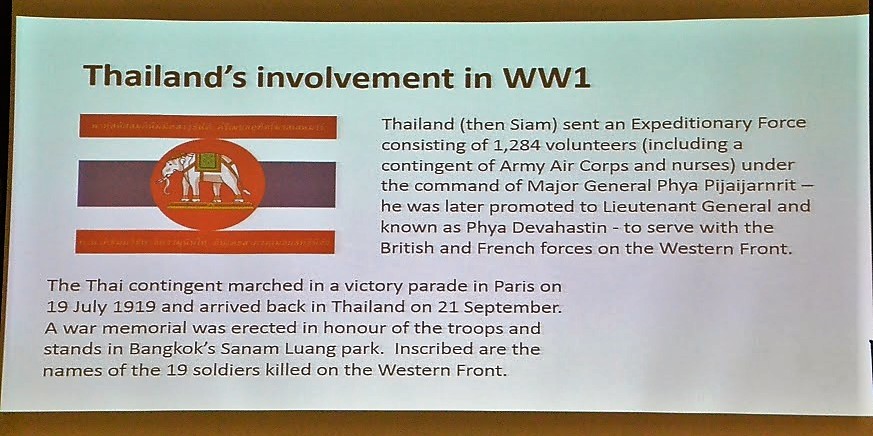
Welfare is supported by the Legion’s work with politicians to improve the lives of the veteran community. Other welfare activities include the Battle Back Centre in Lilleshall, Shropshire, which provides adaptive sports and adventurous training activities for wounded, injured and sick service personnel. The centre is focussed on rebuilding confidence, ability and self-motivation to enable service men and women to either return to duty or learn new skills to aid their transition to civilian life. RBL Blast Injury Studies Centre at Imperial College is a joint project between the Legion and the College to carry out research into the effects of blast injuries caused by roadside bombs and other IEDs. The Invictus Games, started in 2014, uses the power of sport to inspire recovery, support rehabilitation and generate a wider understanding and respect for wounded, injured and sick Service men and women.
Comradeship is provided by 322,000 members, 2,500 branches in the UK and Branches in 10 overseas countries, over 2 million Facebook fans, and over 120,000 who follow @PoppyLegion on Twitter.
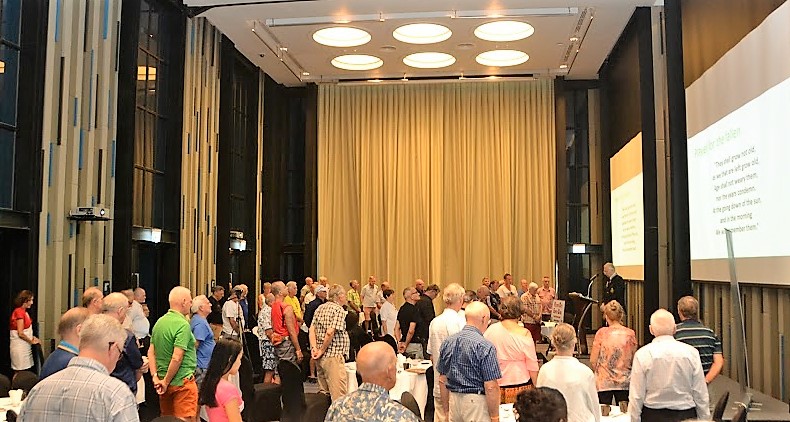
Remembrance – As the nation’s custodian of “Remembrance”, the Legion is responsible for national observances such as the Festival of Remembrance, held every year at the Royal Albert Hall and the veterans’ march past at the Cenotaph, on Remembrance Sunday, on or about 11 November. Throughout the world, there is a pause to observe the “Two Minute Silence” at 1100 hours, on this day, every year, because at the 11th hour, on the 11th day, of the 11th month, in 1918, World War I ended. During this time, we remember those who have made sacrifices for the freedom we enjoy today.
The National Memorial Arboretum in Staffordshire is part of the Legion’s family of charities and each year around 300,000 people visit this site of reflection and remembrance. It is home to the Armed Forces Memorial, a stunning tribute to every service man and woman killed on duty, since the end of the Second World War.
A remembrance event is provided in Trafalgar Square on Armistice Day. Thousands of people attend the moving program of music and poetry before Central London comes to a standstill at 11am for the two-minute silence.
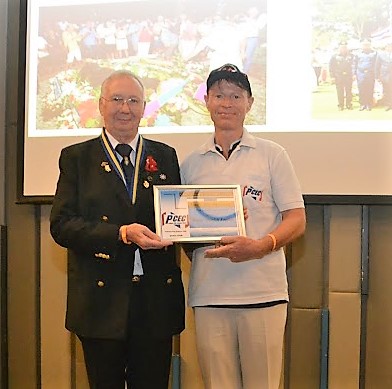
Poppy Day was first suggested by the Canadian surgeon John McCrae in his poem “In Flanders Fields”. The poppy came to represent the immeasurable sacrifice made by his comrades and quickly became a lasting memorial to those who died in World War One. Inspired by McCrae’s poem, an American War Secretary, Moina Michael, bought poppies to sell to her friends to raise money for servicemen in need, after the First World War. This tradition was adopted by the Royal British Legion in 1921 as a symbol for the “Poppy Appeal” in aid of those serving in the British Armed Forces. The symbol of the poppy today represents remembrance of the past and hope for the future.
Poppy Day in Thailand is celebrated during Thailand’s Veterans Day celebrations at Chonburi Army Camp. In April, the ANZAC commemoration is provided at the Commonwealth War Graves Commission (CWGC) Cemetery in Kanchanaburi. Then in November, Armistice Day is also commemorated at the Kanchanaburi CWGC Cemetery.
What is ANZAC or Australia and New Zealand Army Corps? Australians recognize 25 April as an occasion of national commemoration to this group. Commemorative services are held at dawn, the time of the original landing across the nation. Later in the day, ex-servicemen and women meet and join in marches through the major cities and many smaller centres. Almost every town has a commemorative service of some kind. It is a day when Australians reflect on the many different meanings of war.
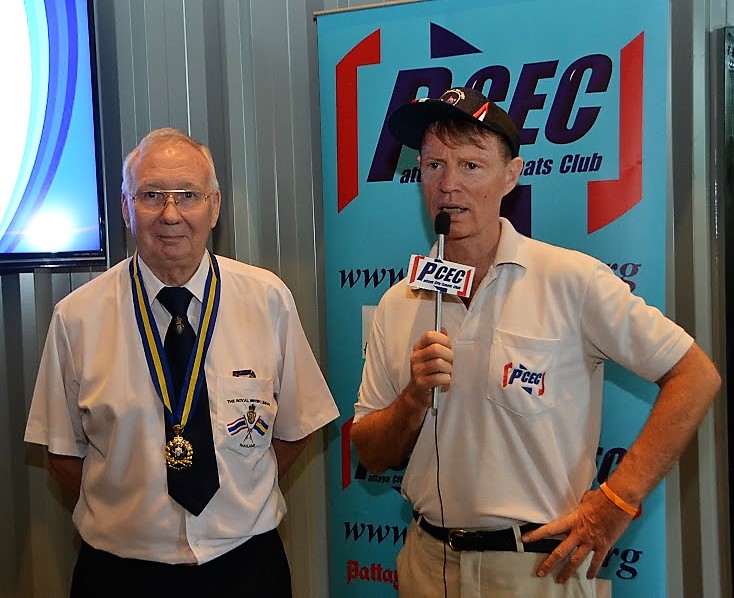
Andy concluded the presentation with “The Prayer for the Fallen” and a moment of silence. “They shall grow not old, as we that are left grow old; Age shall not weary them, nor the years condemn. At the going down of the sun, and in the morning, we will remember them.”
After the presentation, MC Roy Albiston gave an update of current events and activities, which was then followed by the Open Forum, where questions are asked and answered or comments made about Expat living in Pattaya.
For more information about the PCEC, visit their website at www.pcec.club.




